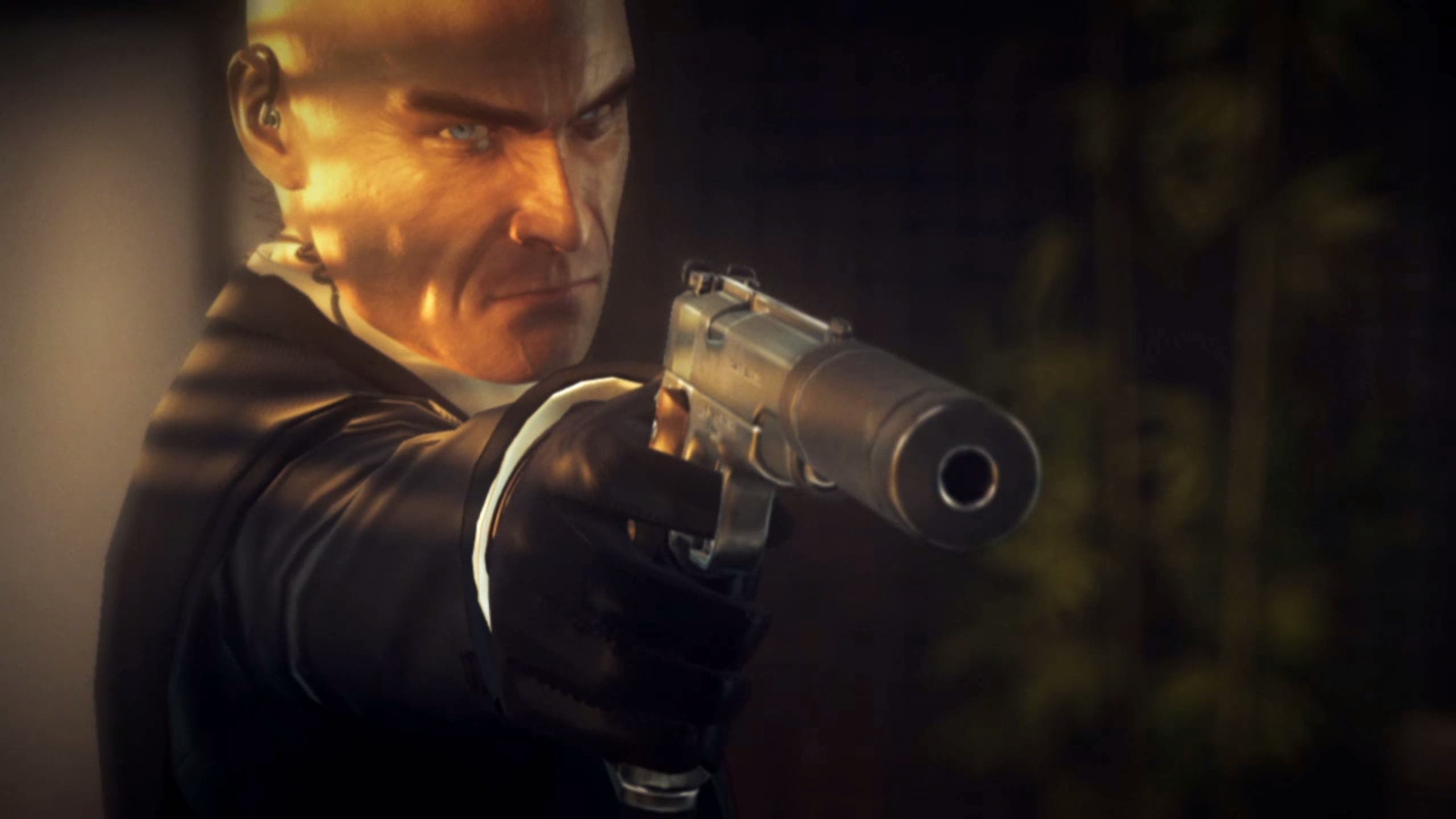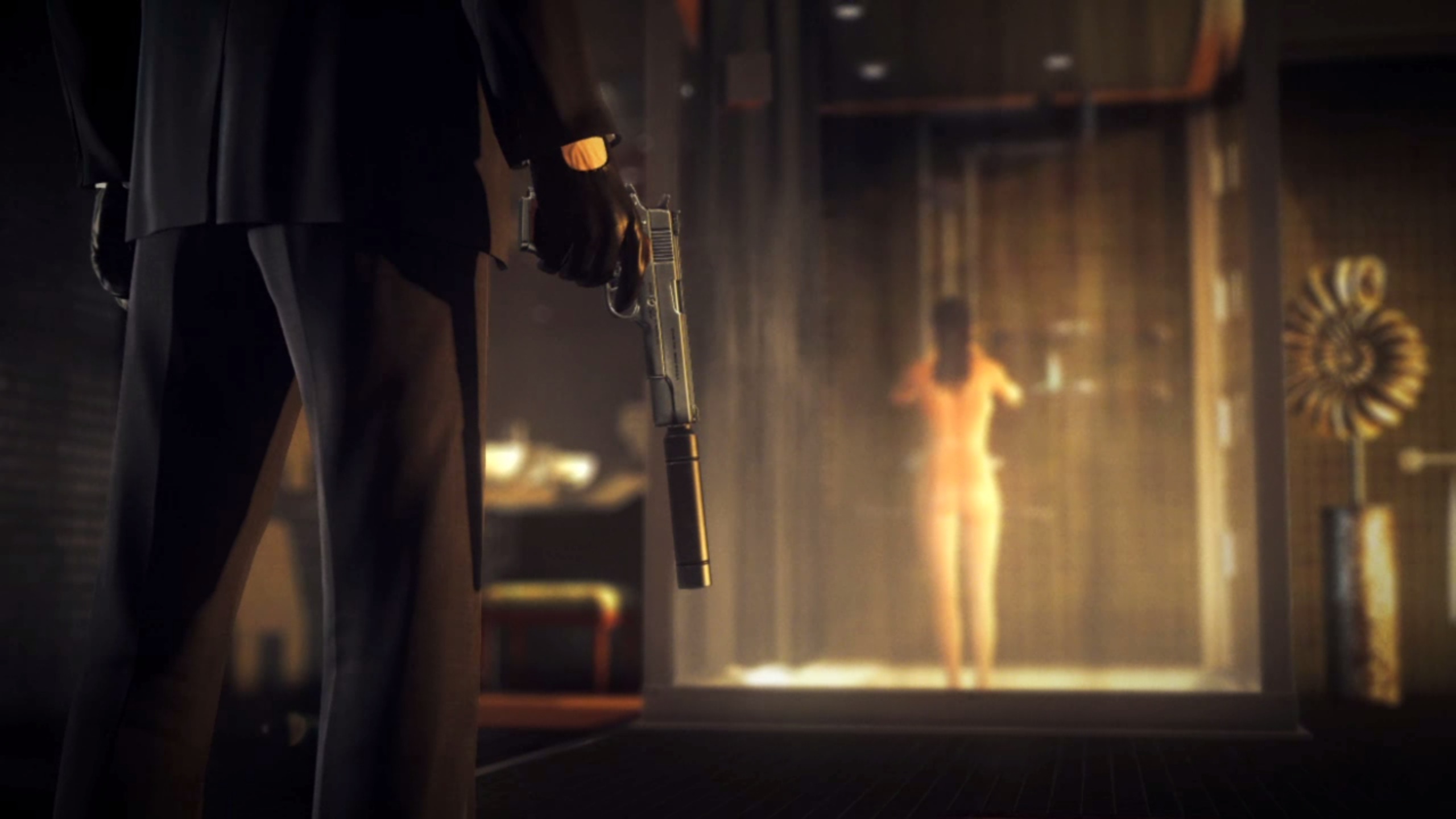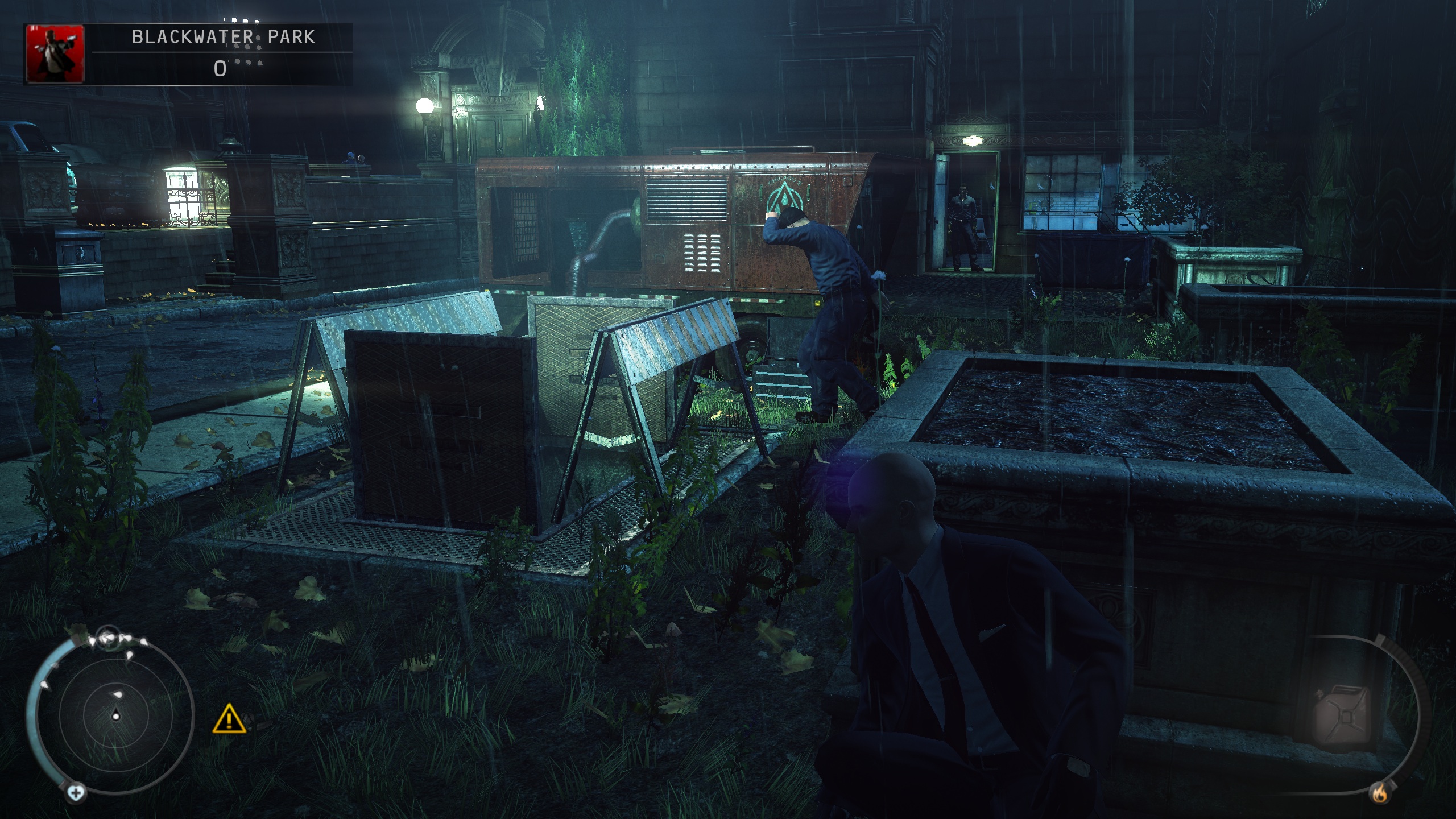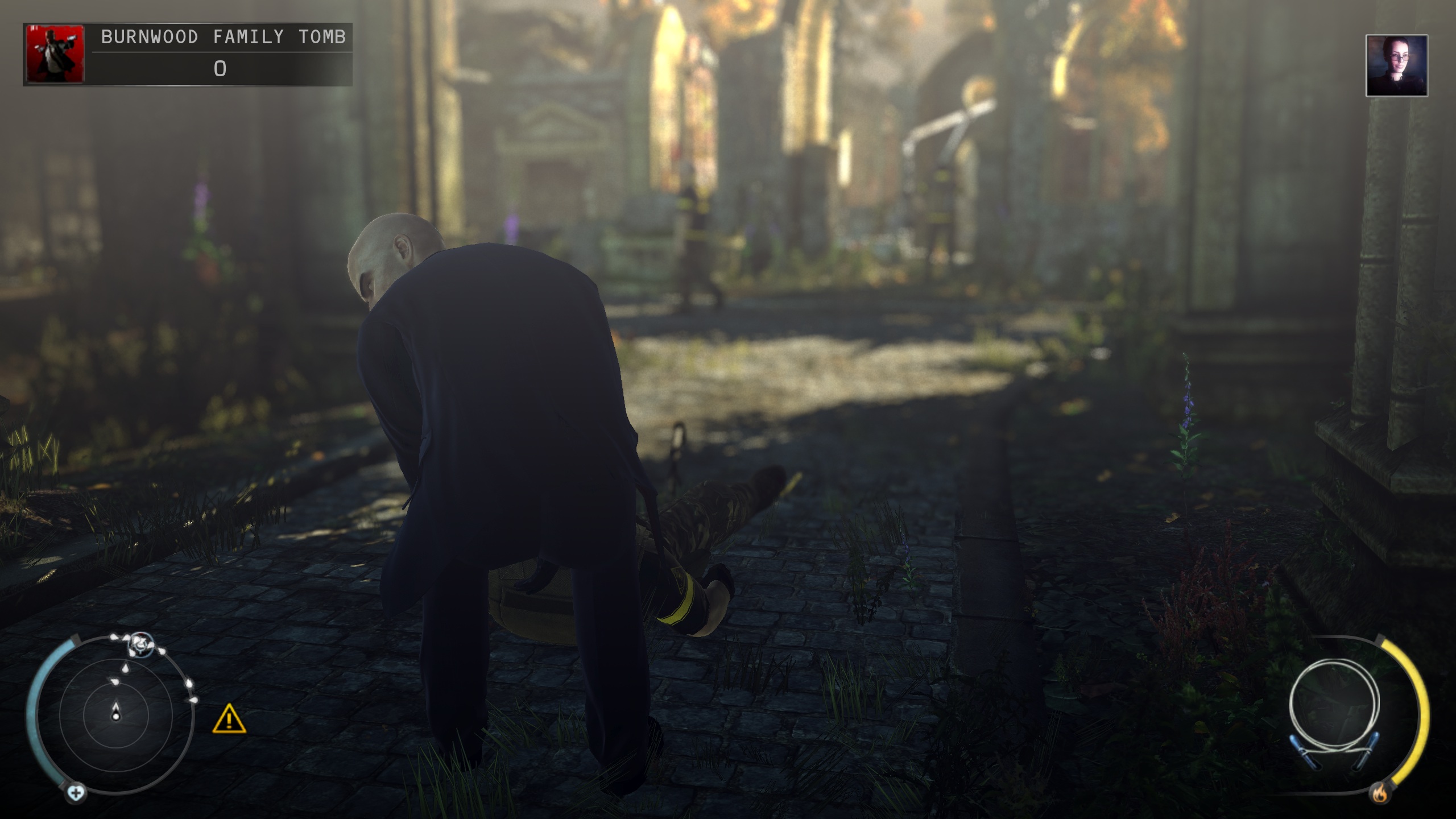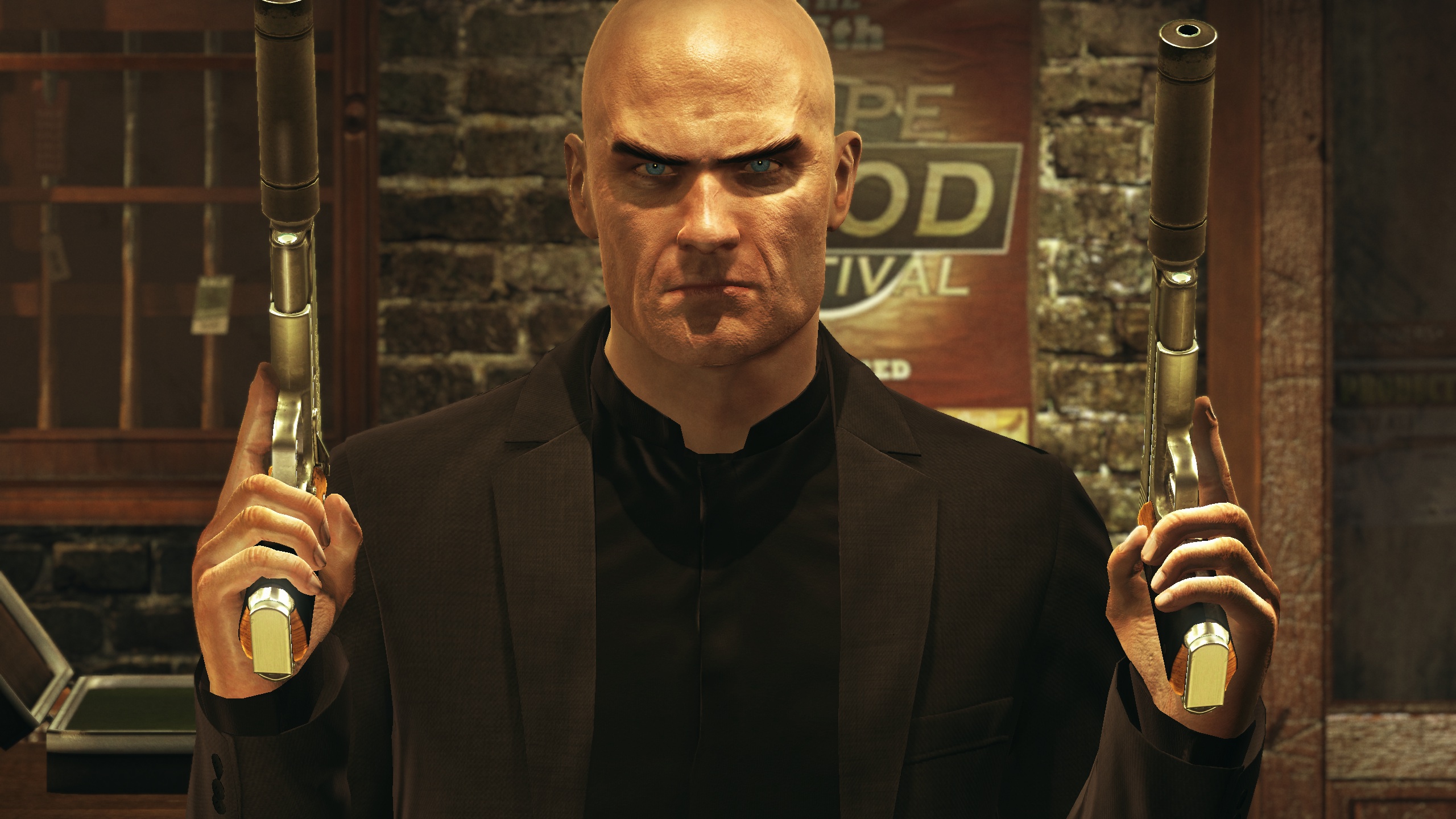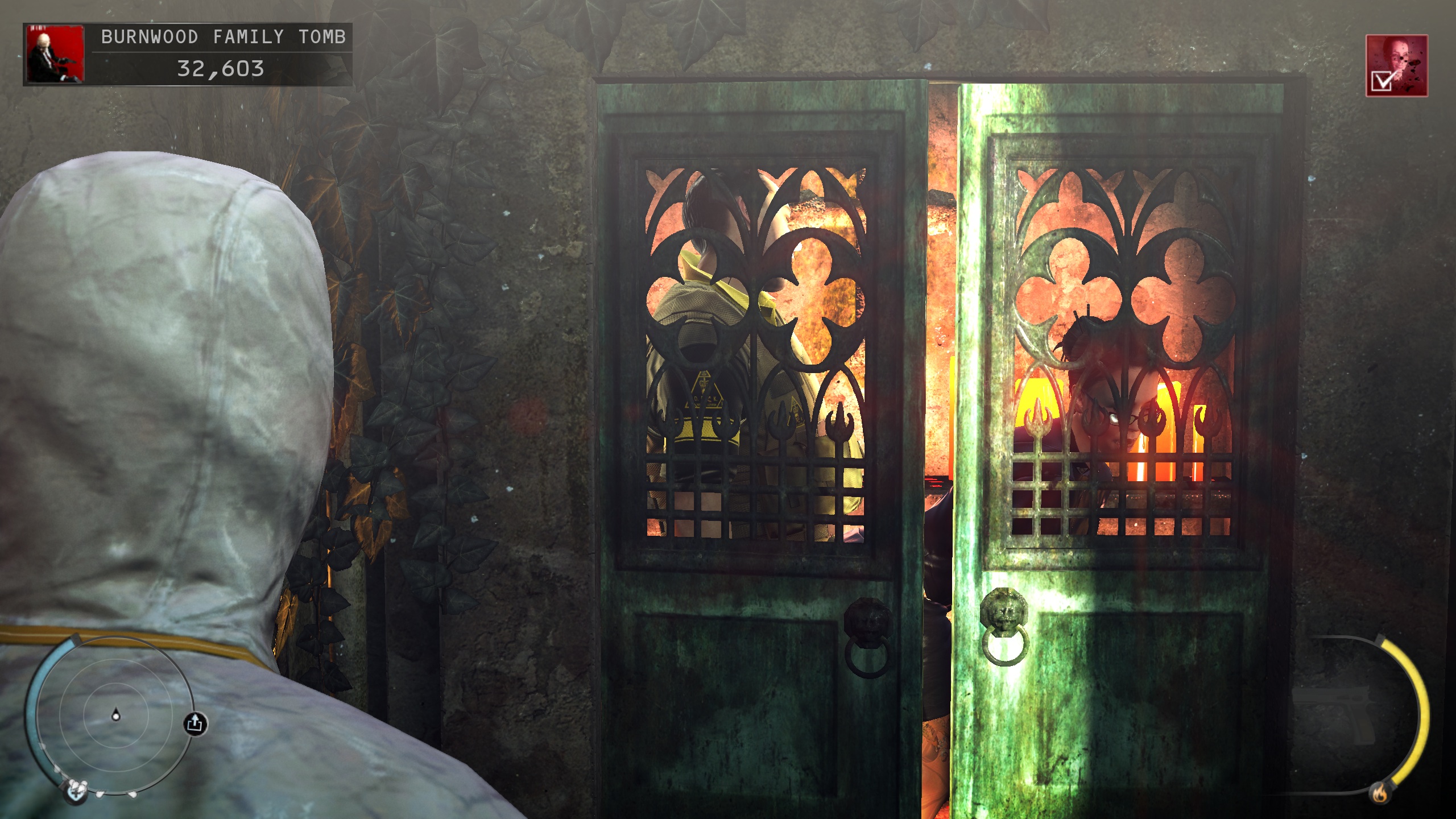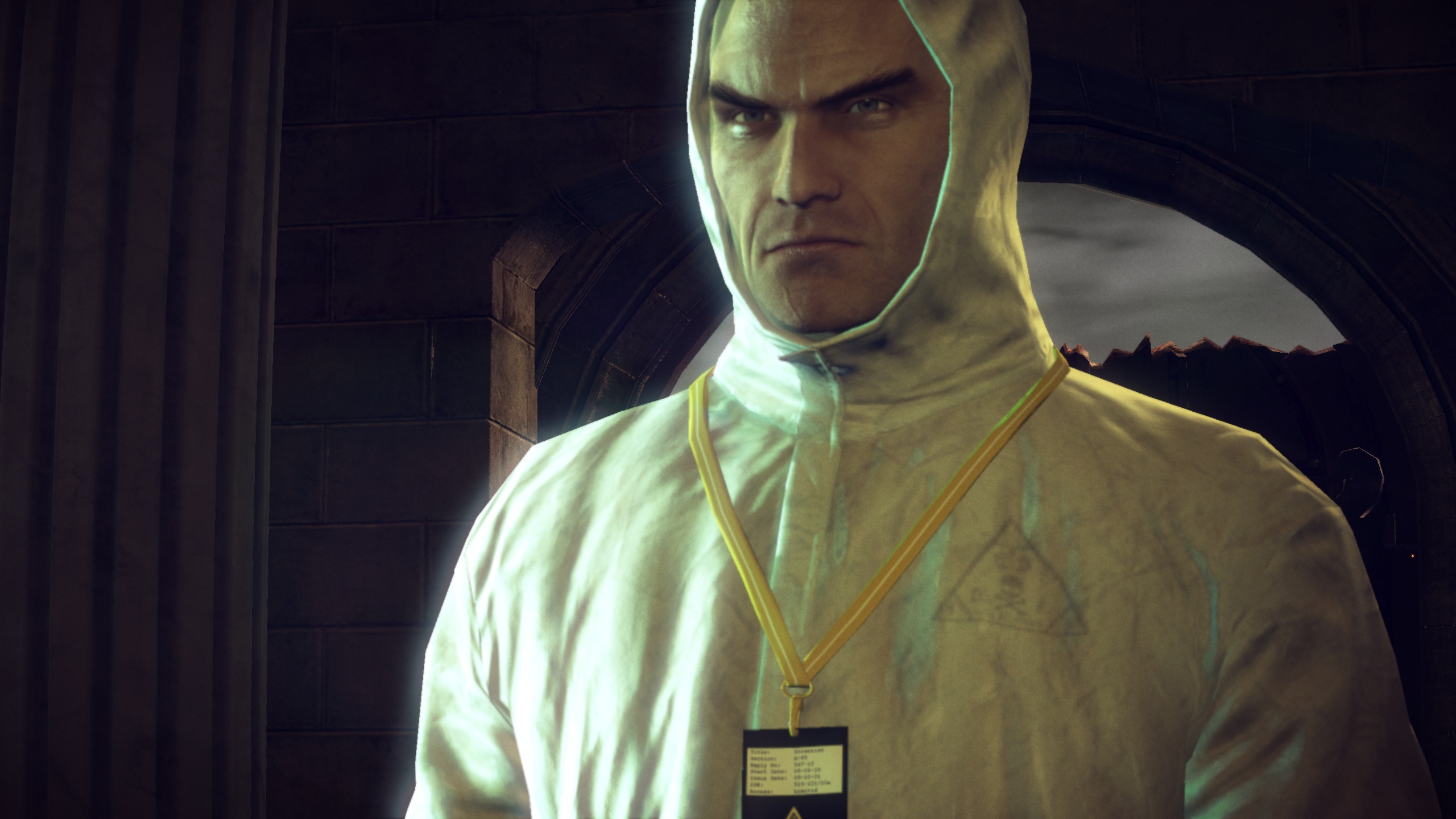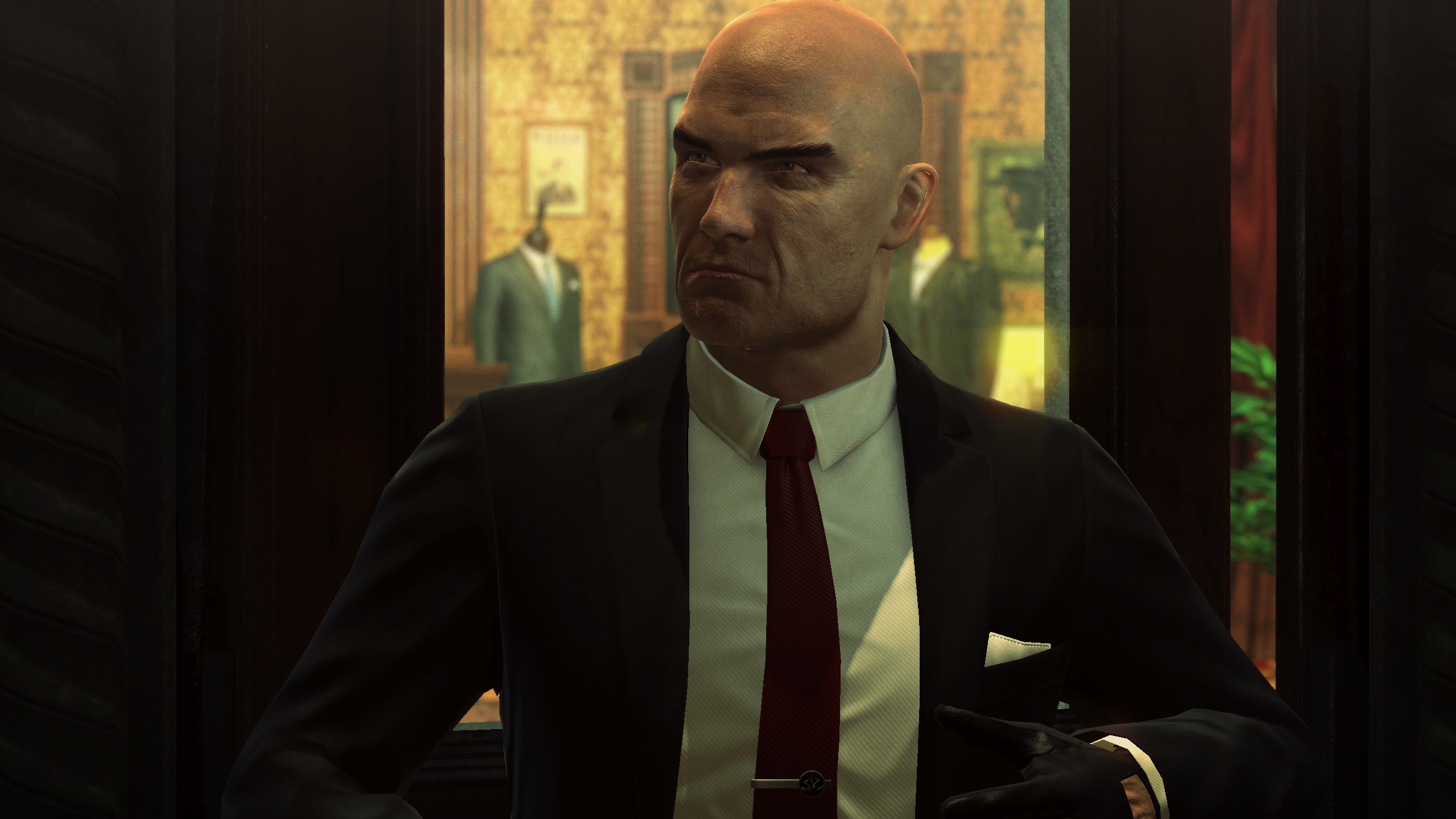Hitman: Absolution
Confession time, once again: I have spent precious little time in any of the Hitman titles. Before Absolution, my knowledge of the Hitman series was limited to something about a professional contract killer with a barcode on the back of his head that read 47, with various ways of eliminating targets via use of disguises, varied weaponry and accident kills.
Going into Hitman Absolution, I was excited to play the latest Hitman title. Maybe this would be the one that sucked me right into the Hitman universe, prompting me to go back and play some of the older games in the series, just to see where Hitman Absolution got its roots from.
And as I played through Absolution, it did give me that feeling that I needed to play the previous titles — but for all the wrong reasons. As it stands, I’m not entirely sure whether I liked Absolution or not. You can have fun, but it’s few and far between, and even then, you have to look pretty hard for it.
Which is a great shame, as Absolution has a great start: as a player, you’re quickly caught up with what happened in the previous game(s), and learn that your former handler from the Agency has gone rogue and taken a valuable Agency asset with her. As an Agent, you’re tasked with eliminating your former handler and recovering the asset, which is what I assume to be pretty standard fare for Hitman games thus far. But things take a turn just when you’re pulling the trigger on your former handler: you begin to question why she went rogue in the first place. Quite convenient, really, and it’s all very cinematic, very tense, and plays out quite well. After hearing her side of the story, you decide to go rogue yourself — you acquire the asset, who turns out to be this (let’s face it, somewhat attractive) young girl, and go into hiding — from the Agency, who now have a serious problem on their hands.
What follows next, story-wise, is a competent, if slightly bland, story based on Agent 47 finding out why this agency asset is so valuable; you taking back the Agency asset from those that have taken her, and finally, you eliminating the main villians (and, of course, anyone else that gets in your way). If you follow along with the story the whole way though, you’ll realise that it’s a little shallow; the game revolves around this agency asset a little too much in my opinion, and doesn’t spend enough time exploring the Agency side of things, or any other side stories. And maybe that’s just my perspective, given Absolution is the first Hitman game I’ve played, but the fact that the story itself is a little ho-hum is okay, because I wasn’t really expecting anything spectacular from what was supposed to be a gameplay-focused game, a game that truly excelled in the gameplay.
Which is disappointing on so many levels, because Absolution falls flat on its face in the gameplay stakes.
Absolution feels like one of those games where the developers tried to do something different, and while the result is not horrifyingly bad, it’s not particularly great, or even good, either. I’ve been told by previous fans of the Hitman series is that it’s a departure from what the previous Hitman games were all about, with core mechanics breaking all over the place.
First things first: stealth is horribly, horribly broken in this game, mostly due to how linear the levels are. If you don’t want to be spotted by the numerous guards dotted around every level, you have to use disguises, and using disguises (invariably) means using Instinct, the new ability that means 47 can see through walls, see enemy paths, and trick NPCs into believing you’re one of them, provided you don’t get too close. And when you run out of Instinct and want to still do things stealthy, you have to resort to pacifying (or outright killing) non-targets: guards, sentries, witnesses to any of your crimes. Which would be fine, if the game didn’t constantly remind you of the mark of a silent assassin: i.e. the one that leaves his environment untouched. How exactly am I supposed to do that when your core gameplay is so bad? It’s unpossible, and somewhat leaves you with the feeling that you’ve failed.
With stealth out of the equation, what’s next? Maybe the linear levels I mentioned earlier? I get that games have to have objectives for some kind of progression, but Absolution shows the way to not do it: the levels are linear enough that it means you usually have one or two ways to progress. And that wouldn’t be a problem, if only you didn’t have to deal with the broken stealth mechanics. Or disguises. And even those wouldn’t be so bad, if you didn’t have to deal with your ever-depleting Instinct. Which wouldn’t be so bad if you didn’t have the broken stealth mechanics in the first place. Can you see where this is going? It’s a vicious cycle — as one mechanic depends on another, it means that the entire game falls down because of one broken mechanic somewhere along the line.
I’ve read comparisons saying Absolution is what would happen if someone put Agent 47 into Splinter Cell Conviction, and that’s a really good way of describing it. You have the Conviction-style “mark and execute” feature, complete with the slowed-down time that comes with — of course, you use Instinct any time you do so. You can climb into vents, kill anyone with basically anything, but at the end of the day, you’re relying on a feature from another game to get the job done. It’s a shame, because I somewhat liked Conviction, even though fans of the Splinter Cell series stay well clear from it.
Perhaps all this wouldn’t be so bad if it wasn’t for that damned score counter. It’s very fact taht there is a score counter means there is some way Square Enix want you to play the game, and since when has that been a good idea? That damned score counter means your ever moved is tracked. Spotted by guards? Minus points for you! Pacifying or outright killing a non-target? Minus points! Doing anything the game doesn’t consider the “right” way to go about your business? You guessed it — minus points. Maybe the score counter itself wouldn’t be so bad it if didn’t constantly compare your score to the country average, or show you the highest score your friends on Steam managed to achieve, but for perfectionists like me, the score counter is my own personal hell. Getting spotted means restarting the level, and having to re-play multiple parts again and again isn’t really my idea of fun, and for what? A better score? Don’t get me wrong: I get doing the challenges to get more points, but when a game criticises and punishes you for playing in your particular play-style, that’s inexcusable.
My many gripes don’t end there: as much as I am loathe to say it, even the eliminations themselves are lacking imagination. Set off a few accident kills here and there, or just garrotte people from behind — you’ll probably get more points from the garrotte kill, but it’s unimaginative, and you won’t complete any challenges (which could further your score in other playthroughs, if you wish to experience further pain). Because finding out about creative ways to kill people/complete objectives is a chore, sometimes it’s just easier to kill everyone and then just walk around and see you can actually accomplish given the level’s design. Sure, you could do your explorations all stealthy-like, using every dirty trick in the book, but honestly, who has the time for that? A broken stealth mechanic means you’ll blow your cover soon enough anyway — and like I said, it’s much easier just to wreak absolute havoc on your first go, seeing where things are and what kinds of tools you can interact with, then go back and do it “the proper way”, however many creative endings that entails.
And that’s perhaps Absolution‘s major crime: the fact that it has a score counter, and the fact that it forces you to play a certain way. The linear levels combined with the constant threat of detection mean that levels can be frustrating to no end fustrate you to no end. Certain levels will leave you with a feeling of “I can’t be bothered anymore, so I’ll just take the easiest way out to get this over and done with, score be damned” — precisely the opposite of what the developers would have wanted.
But, wait, didn’t I say you can have fun in Absolution? I did, and you can: there’s perhaps one or two levels which show off what the game is truly capable of. The Streets of Hope level, in particular, as well as Blackwater Park. No, not when you’re trying to sneak in to Blackwater Park, because that’s a suck-fest of broken stealth and disguises, but the part upstairs where you can do your own thing. Streets of Hope is a great level because it’s open, allows you to eliminate the targets in any order you choose, and provides you with plenty of options to do so. You can do the whole thing without having to use Instinct, and you can do the whole thing without disguises. Blackwater Park is similar: you can roam around, take out a few guards here and there, and then eliminate the target without anyone else batting an eyelid. Or you can kill everyone and let the chips fall where they may — the choice is up to you.
Thinking about that choice factor only serves to reinforce my game of the year choice, Dishonored. There are many parallels to be drawn between Absolution and Dishonored: both can be stealth-based games that revolve around certain eliminations, and both can involve as much lethality as you want. You have targets in both Dishonored and in Absolution, and in both games, it’s up to you how to take those targets out. There’s multiple paths in both games, too, giving you a variety of ways to access your targets.
Dishonored didn’t do a lot, but everything it did do, it did well — it did stealth well, it did eliminations well, and it did choice well. You were always given a number of ways to eliminate your targets, and you were always given various paths to the target. But perhaps more telling is what it didn’t do: Dishonored didn’t give you a score counter that penalised you for playing the game the wrong way, nor did it force you to do things a certain way to gain the best score. I like sportsmanship as much as the next guy, but don’t we already have that in Absolution‘s Challenges mode? No need to taint the single-player campaign with that sort of nonsense, too. Dishonored didn’t directly penalise you for choosing a kill-everything lethal playthrough, but it did make you aware that your choices had an effect on the overall game by giving you a different ending.
And I think it’s this lack of choice that ultimately lets down Hitman Absolution. Yes, you can have fun with it, and yes, there are some enjoyable parts — but all those are overshadowed by the constant reminder that what you might be doing is the wrong way to play the game. Honestly, some levels feel like hard work; be prepared to play them over and over again if you want to get the best possible score. We haven’t even discussed what it means to be an Agent, or how the game makes you feel like you’re eliminating some bad people from the face of the earth — because none of that matters if the game itself isn’t enjoyable to play.
I wanted to like my first Hitman title, I really did. We’ve come to expect a linear campaign from first-person shooters such as Medal of Honor, Battlefield, and Call of Duty, and for those kinds of games, it makes sense. And honestly, sometimes I prefer linear campaigns that have a nice progression from one level to the next — and note that the linear story aspect doesn’t rule out open-world gameplay, where you’re given choice about how to go about your business when you’re playing the main protagonist. But when Absolution felt its absolute best during one of the most open-world levels in the entire game, you know something is up with the rest of the game — which is a pity, because there’s a competent, if slightly shallow, story to be had in Absolution, a story thoroughly let down by some truly mediocre gameplay with some game-breaking mechanics thrown in for good measure.
The final word is exactly that: if only Hitman Absolution did things slightly differently, it would have been a must-play. In its current form, it’s hard to recommend unless you like the kind of game where you’re graded on your every move. That, ladies and gentlemen, is the final word.
